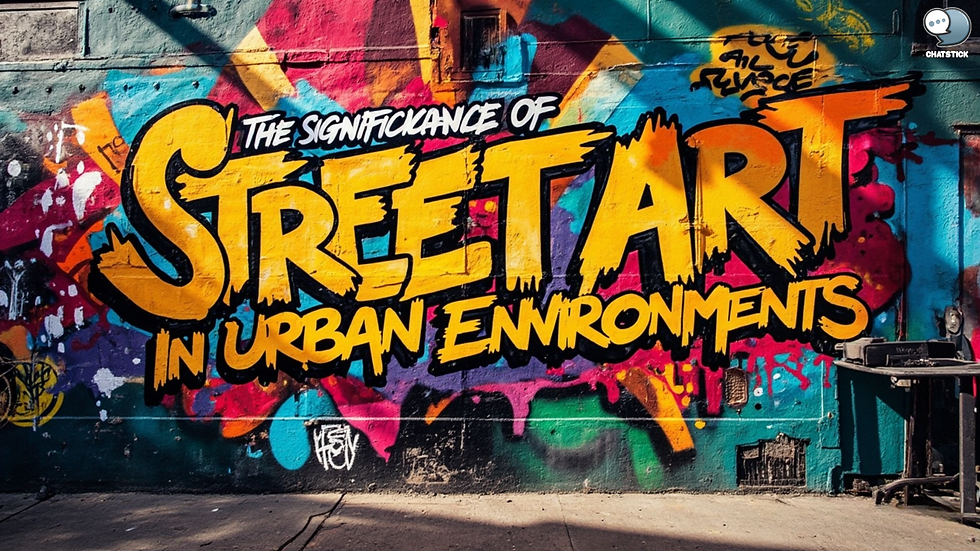The influence of political and social movements on art and design
- ChatStick For Brand
- Feb 24, 2023
- 3 min read
Art and design have always been influenced by political and social movements throughout history. These movements have had a significant impact on art and design, not only in terms of subject matter but also in terms of style and form. In this article, we will explore how political and social movements have influenced art and design and how they continue to shape the world of creativity today.
Political Movements
Political movements have played a crucial role in shaping art and design throughout history. They have often provided artists with a platform to express their political views and to challenge the status quo. One of the most significant political movements that influenced art and design was the Russian Revolution of 1917. The Revolution led to the rise of the Soviet Union, which promoted socialist realism as the official style of art. Socialist realism was characterized by its realistic depictions of working-class people and its emphasis on portraying the struggle for social and economic equality.
In the United States, the Civil Rights Movement of the 1960s and 70s had a significant impact on art and design. The movement inspired a new wave of artists who sought to challenge the traditional notions of beauty and representation in art. They created works that celebrated African American culture and history, and that highlighted the struggles and achievements of black Americans. This movement also led to the rise of Black Power aesthetics, which emphasized bold, graphic design and typography that communicated political messages of empowerment.
Social Movements
Social movements have also had a significant influence on art and design. Social movements are usually grassroots movements that seek to change societal attitudes and behaviors. One of the most influential social movements in the 20th century was the feminist movement. The feminist movement led to the rise of feminist art, which sought to challenge the patriarchal norms in art and society. Feminist artists often used their art to explore themes of gender, sexuality, and identity. This movement led to the development of new art forms, such as performance art and installation art, which were used to explore feminist issues.
The LGBTQ+ movement has also had a significant impact on art and design. LGBTQ+ artists have used their work to challenge societal attitudes towards sexuality and gender identity. LGBTQ+ art has been used to celebrate LGBTQ+ culture, to raise awareness about LGBTQ+ rights, and to challenge homophobia and transphobia. This movement has led to the development of new art forms, such as queer art, which seeks to explore the intersections of gender, sexuality, and identity.
Contemporary Art and Design
Political and social movements continue to shape contemporary art and design. In recent years, the Black Lives Matter movement has had a significant impact on art and design. Artists and designers have created works that highlight the struggles and achievements of black Americans and that challenge the systemic racism that exists in society. The Me Too movement has also had a significant impact on art and design. Artists and designers have used their work to explore themes of sexual harassment and assault and to raise awareness about the prevalence of these issues in society.
Conclusion
Political and social movements have had a significant impact on art and design throughout history. They have provided artists and designers with a platform to express their political views and to challenge the status quo. These movements have led to the development of new art forms and styles, and they continue to shape the world of creativity today. As we move forward, it is important to remember the role that political and social movements have played in shaping art and design and to continue to use art and design as a means of social and political activism.






Comments